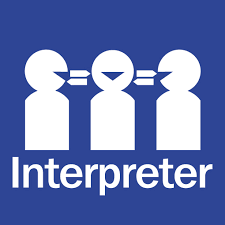记忆方法
为了记住“interpreter”这个单词,可以将其拆分为两个部分:“interpret”和“-er”。首先,将“interpret”想象为一个动作,它意味着解释或翻译。然后,将“-er”添加在末尾,表示执行这个动作的人。因此,记忆方法是:一个“interpret”(解释者或翻译者)“er”,即“interpreter”是指从事翻译工作的人。
以上内容由AI生成, 仅供参考和借鉴
中文词源
interpreter 口译译员
来自interpret,口译。
英语词源
- interpreter (n.)
- "one who translates spoken languages; a translator of written texts," late 14c., from Old French interpreteor, from Late Latin interpretatorem, agent noun from interpretari (see interpret).
权威例句
- 1. He was an official interpreter to the government of Nepal.
- 他曾是尼泊尔政府的官方译员。
- 2. The civil war claimed the life of a U.N. interpreter yesterday.
- 昨天,内战夺去了一位联合国译员的生命。
- 3. Speaking through an interpreter , the President said that the talks were going well.
- 总统通过译员说会谈进展良好。
- 4. Listening to the speech through an interpreter lessened its impact somewhat.
- 演讲辞通过翻译的嘴说出来,多少削弱了演讲的力量.
- 5. We must allow him to be a good interpreter.
- 我们必须承认他是个好译员.
